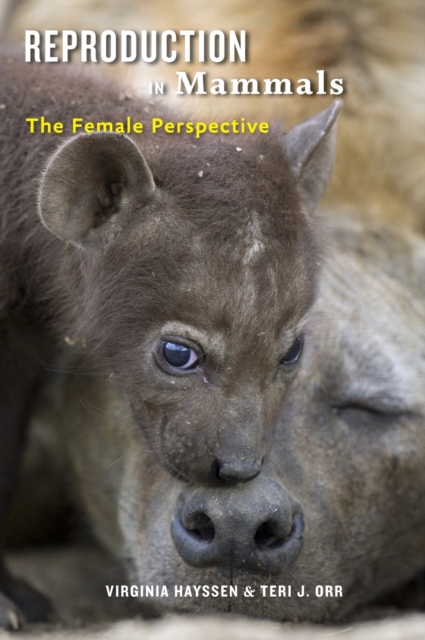
Reproduction in Mammals : The Female Perspective Hardback
by Virginia (Smith College) Hayssen, Teri (5185 Lost Padres Mine Rd and) Orr
Hardback
Description
Newborn mammals can weigh as little as a dime or as much as a motorcycle.
Some receive milk for only a few days, whereas others nurse for years.
Humans typically have only one baby at a time following nine months of pregnancy, but other mammals have twenty or more young after only a few weeks in utero.
What causes this incredible reproductive diversity? In Reproduction in Mammals, Virginia Hayssen and Teri Orr present readers with a fascinating examination of the varied reproductive strategies of a broad spectrum of mammals, from marsupials to whales.
This unique book's comprehensive coverage gathers stories from many taxa into a single, cohesive perspective that centers on the reproductive lives of females.
The authors shed light on a number of intriguing questions, including * do bigger moms have bigger babies?* do primates have longer pregnancies than other groups?* does habitat influence animals' reproductive patterns?* do carnivores typically produce larger litters than prey species? The book opens with the authors' definition of what constitutes a female perspective and an examination of the evolution of reproduction in mammals. It then outlines the typical individual mammalian female: her genetics, anatomy, and physiology.
Taking a nuanced approach, Hayssen and Orr describe the female reproductive cycle and explore female mammals' interactions with males and offspring.
Readers will come away from this thought-provoking book with an understanding not only of how reproduction fits into the lives of female mammals but also of how biology has affected the enormously diverse reproductive patterns of the phenotypes we observe today.
Information
-
Available to Order - This title is available to order, with delivery expected within 2 weeks
- Format:Hardback
- Pages:368 pages, 45 Illustrations, black and white
- Publisher:Johns Hopkins University Press
- Publication Date:22/12/2017
- Category:
- ISBN:9781421423159
Information
-
Available to Order - This title is available to order, with delivery expected within 2 weeks
- Format:Hardback
- Pages:368 pages, 45 Illustrations, black and white
- Publisher:Johns Hopkins University Press
- Publication Date:22/12/2017
- Category:
- ISBN:9781421423159






